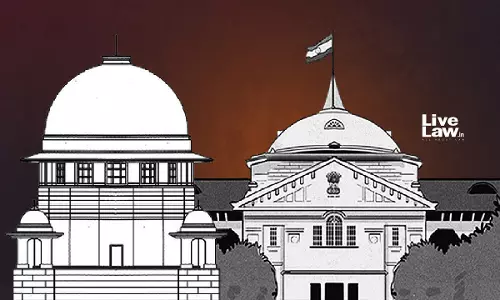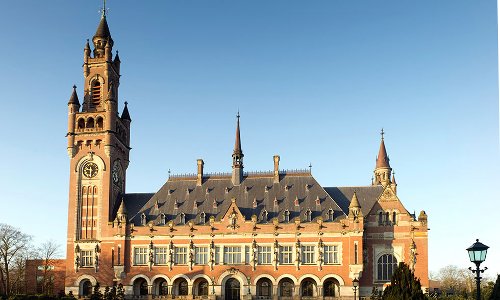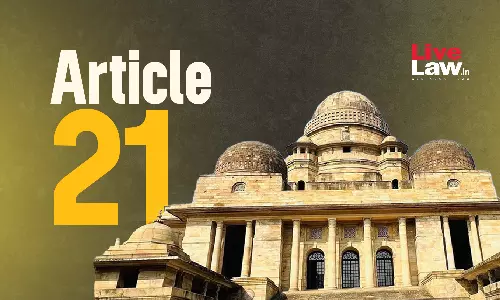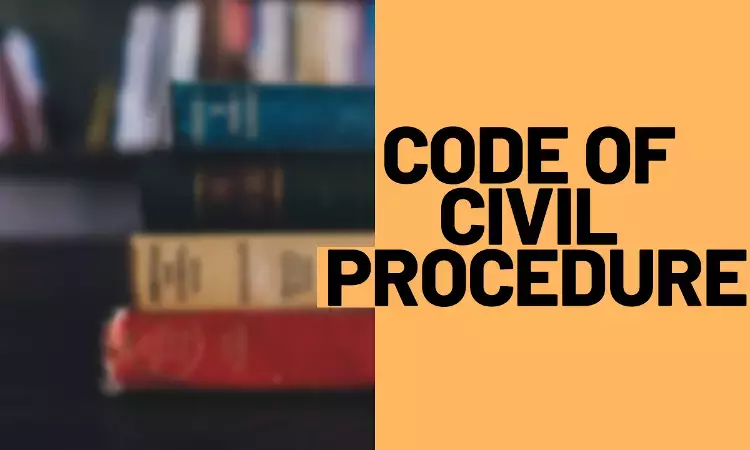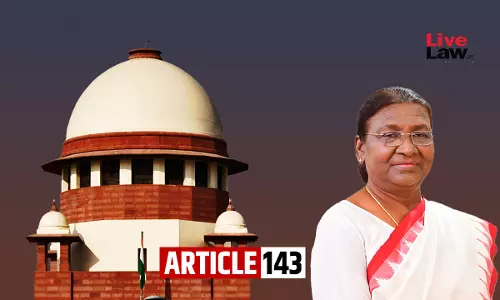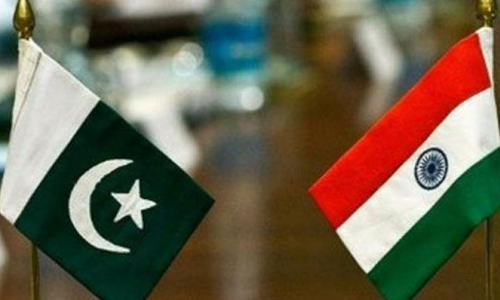Articles
Judicial Supervision Vs. Constitutional Autonomy of High Courts
India's federal judicial structure balances the Supreme Court's role as the apex interpreter of the Constitution with the High Courts' constitutional autonomy. On 04.08.2025, the Supreme Court, in M/s. Shikhar Chemicals v. The State of Uttar Pradesh & Anr. (Special Leave Petition (Crl.) No. 11445/2025), issued administrative directives to the Chief Justice of the Allahabad High Court,...
World Court's Advisory On Climate Change And Its Implications For India
On 23rd July 2025, the International Court of Justice (ICJ) delivered its advisory opinion on climate change, discussing the obligations of the State in the context of climate change, and legal consequences linked with such obligations. While the ICJ clearly enunciated that climate change is “an existential threat” and climate obligations of States are progressive, there are also...
Due Process Can't Be Denied: Bombay High Court Reinforces Rights of Accused Under Article 21
Nagpur Bench of the Bombay High Court emphasized that even those suspected in a criminal case deserve the complete protection of “Article 21 of the Indian Constitution”. This includes the right to dignity, fair procedures, and safeguards against arbitrary arrests. This decision arose from a case involving a female CEO who was arrested after dark and without complying with other...
Punished Without Certainty? Why Section 10 of BNS Deserves Judicial Review
The Bharatiya Nyaya Sanhita (BNS), 2023, was introduced to replace the colonial-era Indian Penal Code (IPC). While the legislative intent was to modernise India's criminal legal framework, some provisions in the BNS have sparked legal and constitutional debate. One such provision is Section 10[1], which reads as follows:"In all cases in which judgment is given that a person is guilty of one...
Rhyme And Reason Of 'One Nation, One Election': A Constitutional Inquiry
Over the past few months, the idea of 'One Nation One Election'(ONOE) which means the simultaneous elections of Lok Sabha and the State Legislative Assemblies on the same date has drawn widespread attention. The 129th Constitutional Amendment Bill, introduced in 2024, aims to lay the foundation stone for implementing simultaneous elections across India. On the face of the proposal, it looks...
Handcuffing And Leg Shackling Of US Deportees: Legal Perspective
A series of migrant flights carrying hundreds of illegal Indian migrants from the US landed in Amritsar this year. This involved a group of Indian citizens being deported from the US. This began on February 5, when around 104 Indian illegal immigrants were deported to India from a U.S. military plane, and then the process continued to deport more than 300 Indians via a series of flights. ...
Judicial Deadlock: Inseverable Liabilities And Order XXII's Ambiguities
The death of any party during the pendency of a civil suit signifies a crucial procedural juncture—one that may either preserve the cause of action or result in the suit abating entirely. Abatement denotes the cessation of legal proceedings on the death of a party to a suit wherein the right to sue does not survive or the legal representative is not substituted within the limitation...
Psychology Of Breach: How Misreading Liquidated Damages Skews Contractual Behavior
Law is more than just a method of resolving conflicts. It influences the behavior of individuals and institutions as a precondition for those conflicts. The interpretation of a legal provision turns out to be as important as the law itself. This is evident from Section 74 of the Indian Contract Act, 1872, which deals with liquidated damages (“LD”). LD clauses are intended to provide...
Internships In Indian Legal Education: Real Learning Or Resume Tick?
In India, the Bar Council of India (BCI) makes the mandatory provision of internships for obtaining a law degree in India. The main aim of introducing mandatory internships is to provide law students with exposure to fieldwork in courtrooms, NGOs, Law firms, and various aspects of law practice, which helps students choose their career path and enhances their knowledge beyond the...
Presidential References In India: A Rich Past, A Fraught Present
Are Presidential References the Constitution's Compass or the Government's Shortcut?Imagine: A law is passed by both Houses of a State Legislature. The elected representatives have done their job. But then the Governor refuses to act on the bill, neither giving assent nor rejecting it, leaving it pending for months, maybe even years. This delays the entire legislative process and...
From Conflict To Compensation: India's Strategic Path To Ensuring Pakistan's Accountability Through An International Claims Commission
Receiving adequate compensation for victims of cross-border terrorism in India should be on the agenda.India's push to add Pakistan back on the FATF 'grey list' is aimed at ensuring economic repercussions. A case for establishing an international compensation mechanism, based on the 'due diligence' obligation under international law, further enhances that strategy. Holding Pakistan...
'Well-Known' To Consumers, Not So 'Well-Known' To Law
Hon'ble Bombay High Court's recent decision in TikTok Ltd. v. Registrar of Trade Marks raises a very fundamental question — can a registered trademark be denied 'well-known' status solely citing the policy decision of government to ban the service/website associated with such trademark?TikTok, through its constituted attorney, filed an application seeking inclusion of its registered...



